|
Dear Seniors,
Today is our last day. Today we will walk into competition for the last time, with our student badges proudly around our necks and smiles on our faces. Today we watch our robot run its last match, we will sit through our last award ceremony. Today we thank our family, teammates, and coaches for their love and support. Today we graduate from the FIRST program. Remember that we are not defined by our final moments, but by our journey. From the day you stepped into the shop, confused, disoriented, and probably scared, to the first competition you attended, surprised, excited, and probably still scared. Every robot is the culmination of various ideas, mistakes, and successes. Every award is the culmination of countless hours towards helping others, days practicing your presentations, and lots of judge talking. This may be the end, but it's a celebration of that journey which culminates in the robots, the awards, the friendships, and the effect FIRST had on you. For many of us, FIRST became a standard part of our lives. FIRST is our passion, our happy place, and our get-away from the stress of social lives (or lack thereof) and school. FIRST is more than robots. You’ve seen it everywhere. Close your eyes and think about what this means to you. Is it that moment you realized you wanted to become an engineer? Is it when you think you’ve met your twin at a robotics event? Is it when you look up at your mentor and can aspire to be just like them? Think about what FIRST has been to you, besides a chance to show off a pile of aluminum or check a box on a college application. This will not end. As students you have the privilege of building a robot, the privilege of sharing that experience with other people, and once that time is up, you have the privilege of helping inspire others to fall into the same passion you did. It’s more than robots, and you should make it this way for the rest of your lifetime. FIRST has helped make you who you are today, and we, your peers in this journey, are here to remind you that it can and should remain a part of you. FIRST is founded on the system of volunteering. Whether it be educating others as a mentor, running events, or just screaming your head off and waving flags around. Think about how many volunteers or mentors you know that were once students like you? Successful in their industry, and still with a heart beating for FIRST. There is a whole new level of pride which you can experience when someone you inspired, not just you personally, succeeds in FIRST. We encourage you to stick around, and let FIRST be a part of your life. Today you will hear a million times that it’s not over, that there’s many years of volunteering and mentoring to come. And while we know this is true, we know that this part of our lives truly is over. Today is our first day. Today we will walk into competition for the first time, with our mentor or volunteer badges proudly around our necks and smiles on our faces. Today we watch our students’ robot run their first match, we will sit through our students’ first award ceremony, and smirk with pride. Today we turn the page to a new chapter of our FIRST career, this means ending the last, but it means the start of something that will continue to be a greater part of your life. The moral of course being; this end could be a new beginning. Cry now, but look forward to how you can make FIRST a part of you forever. Stand by us, as a community of those who aspire to be the future of STEM, and a group of students who love FIRST robotics. A page must always turn for the future to come. Dean has told us time and time again that we are the future. “10 or 15 or 20 years from today, some kid in those stands will have cured alzheimer's or AIDS or cancer, or built an engine that doesn't pollute.” Look at yourself, you are the future. We are the future. This blog was written by two seniors, Rachel Hunter and Kaitlyn Waldman. Rachel joined FIRST when she was 9 years old, and has done FLL, FTC, and FRC. She is a proud alumnus of FTC Team 5972, The Patronum Bots, and currently a student on FRC Team 3132, The Thunder Down Under. In 2014, her FTC team founded FIRST Ladies and she continues to run this community today. In the fall, she will be studying mechanical engineering at the Milwaukee School of Engineering. She would like to thank her family, friends, and teams for their love and support and everyone who has supported and contributed to the success of FIRST Ladies. Kaitlyn has been in FIRST for 4 years, and is the captain of FRC Team 980, The ThunderBots. In the fall, she will be studying aeronautical/astronautical engineering at Purdue University. She will be involved in the Purdue FIRST Program, mentoring an FRC team there. She thanks her mentors and friends for offering her support through the FIRST program and cannot wait to hopefully make the same impact on her future students. If you are interested in blogging for FIRST Ladies, click here to sign up on the schedule.
3 Comments
Hello Juniors!
Most of you (especially considering you are all in FIRST!) will begin the process of looking at schools and determining what college is right for you. Whether you’re going to an engineering school or not, take a look at the questions below to help you in choosing between schools. I’ve broken down these questions into general college questions and engineering specific questions, but everything below may be applicable to your college search. Good luck! General College Questions 1. What is your “circle”? For everyone, there is a radius of how far away from home you are willing to travel for college. Before you make that list of what schools to apply to as a senior, start by asking yourself how far you’re willing to travel EVERY year for four years or more years. Are you comfortable traveling across the country, or are you more comfortable with an hour long drive? By creating this boundary for yourself, you will be able to more easily eliminate schools that are “outside of the circle” and focus on the ones that are in the right area. 2. Are you interested in suburban, urban, or rural schools? While this may seem like a trivial question, many students are still unsure of the answer to this question even during the application process! What’s the best way to figure out this answer- pick three schools that are close to where you live (even if you don’t plan on going there…but if you do, BONUS!) This will give you the exposure to what being a student in each of these environments is like, as they truly are different. 3. Are you looking for a certain atmosphere in a school: i.e. athletic teams to root for, theatre shows to watch, a political charged campus? Clearly every school is different, but is there an aspect from you high school that you loved (or was missing) that you would like to see in your college? For example, I really wanted a team to root for, as my high school didn’t have a lot of school spirit; so I looked at schools that had football or basketball teams and tons of school spirit. In contrast, my sister, who is also a FIRST alumnae, was more interested in schools with great theatre departments, as that’s what she participated in in high school and wanted to continue with in college. 4. Is the presence of Greek Life important to you? Not every school has Greek Life (fraternities and sororities) on campus. What’s more confusing, is that not all schools allow fraternities and sororities to have housing on campus. This information will most likely be available on the school website. When in doubt, contact the college. 5. If you do know what you want to major in- what schools excel in that department? If you’ve already chosen your major, keep some things in mind. For starters, I highly recommend not applying to a technical college if you plan on going to business school or being a liberal arts major. While these schools may say otherwise, keep in mind that the college was designed majors other than your own so there’s the potential that you may not get as much attention as you’d get at other schools. Instead, check out colleges where the department has received awards or the professors are the top in their field. Check with the guidance department at your school or use a “best of” college book, where you can often find the best schools for biology majors, the best schools for math majors, the best schools for english majors, etc. Also remember that there’s a difference between a “top prof” and a professor that actually teaches, as not all professors teach, but instead they have a teaching assistant teach the class or the break out sessions while the professor focuses on research. This information can usually be found on the college website and of course, those “best of” college books. 6. What is the housing situation for the school? Not all housing is equal. For example, at some schools freshman are put on their own campus. I happen to know of one college that puts freshman on a campus a few MILES away from the main campus of the school. Some colleges do not provide housing for juniors, as they assume that most junior students chose to study abroad that year and will not need campus housing. Most common is for schools to not provide on campus housing to seniors. While it is rare nowadays to receive four years of on campus housing from your college, it is still out there. Most commonly it is given to students who have received particular scholarships, students that are varsity athletes, or students who may have a special major. Be sure to check the campus housing and residence life sections of the website for any schools you may be looking at. There you’ll be able to find if housing is available for students all four years. If it is not- check to see if the school supports students in finding suitable off-campus housing or has “university approved” housing options. Engineering/ Computer Science Specific Questions 1. Is the school ABET accredited? I can not emphasize the importance of this enough: you MUST GO TO AN ABET ACCREDITED SCHOOL! ABET (the Accreditation Board for Engineering and Technology) is in charge of accrediting all of the engineering and computer science schools in the country. Why is this important? Employers will only hire engineering and computer science majors if they’ve attended an ABET accredited program or school. So don’t waste your time and money, and go to an ABET school! 2. What is the male/female ratio? Current engineering schools have a class that is between 18% and 21% female. This sounds intimidating until it is broken down into each of the disciplines. This ratio usually gets closer to 50/50 when looking at popular majors such as Chemical or Civil Engineering, and get be skewed to 90/10 when looking at majors such as Electrical or Computer Engineering. Keep in mind that this male to female ratio changes from school to school, as well as from year to year based on the students! However, if being the only girl in your class is an important factor or may influence your decision, bring this point up at a campus tour or contact the university. No one can answer this question better than a student who is currently in that class or a professor who is teaching it. 3. What is the student return percentage? This may be the most important question in this section. If the students aren’t returning after freshman year, then you don’t want to be there. Also keep in mind that there’s a difference between returning to the engineering school and returning to the university. After freshman year, some students decide that engineering is not the right choice for them and they switch majors to sciences, maths, business, etc. While these students have not left the university, they have left the engineering department, and as an engineering major you need to be in an environment where people want to be there. 4. What type of schools are you looking at? For engineers, there are two types of schools: technical schools and liberal arts schools. At a technical school, the emphasis is on technical majors (duh), however at a liberal arts school there are many more directions to go. An important thing to take into consideration is if you DO decide to change your mind and leave engineering. If you’re at a technical school, it may be difficult to find a major at that college that you’re interested it and transferring to a different university may be the only option. At a liberal arts college, there is much more freedom to change majors and switch departments within the university. Another thing to keep in mind is the type of activities that will be available at the school. At a liberal arts school, there will most likely be a plethora of extracurriculars outside of engineering that will allow you meet other students and become involved. However, at a technical school, as most of the students are on the same wavelength, many of the extracurriculars are likely to have the same technical undertones. 5. Is there a freshman curriculum? Many universities are now implementing a freshman curriculum for either the first semester or the first year for freshman. Take a look at these different programs: How are they designed? Do any of the projects sound interesting? Does the curriculum allow students to have an introduction to more than one engineering discipline? The entire purpose of the freshman curriculum is to allow students to have exposure to disciplines that they may not have been and to gain a very basic knowledge of what engineering and the engineering process is. Be sure to learn as much about this class as you can as it will lay the foundation of your engineering career. 6. What majors are offered? **** Not all majors are offered at all engineering schools***** If you are interested in Aerospace or Industrial engineering as your major for example, your list of schools is going to be much smaller than someone who is interested in Mechanical or Electrical Engineering, which is offered at almost every school across the country. Check on the school’s website to see if your desired major if offered. Keep in mind that some popular majors may be offered as minors, dual degrees or as masters degrees. These are just a few questions to help you begin your list of schools and start off your college search. Best of luck to all!! This blog was written by Michelle Parziale. If you are interested in blogging for blogging for FIRST Ladies, click here to sign up on the schedule. If this is the first time you are hearing the words “product design” I recommend you check out my first blog post on the subject here, as this is a follow up post. To catch everyone up to speed, I spent the majority of my first product design blog post raving about the wonderful qualities of this field of study, but now I’m going to dive a bit deeper and address some specifics. What does a degree in product design mean? Product design is the art and science of producing a plan for an item that is intended to be manufactured and sold. Each school is different in how the go about teaching product design but all of the programs more or less encompasses engineering, design, and business courses. Some schools are more engineering heavy and some are more design heavy. If you’re considering a degree in product design, this is something to consider. Where are product design/ industrial design programs in the United States? The National Association of Schools of Art and Design establishes national standards for undergraduate degrees and other credentials. Below is a map of all of the accredited NASAD product design undergraduate programs within the United States. Product design programs from around the country This is a list of all schools in the United States with a program offering a degree in industrial design or a related design discipline at the undergraduate and/or graduate level. I have specifically linked the course list from all of these schools but feel free to check out the IDSA (Industrial Designers Society of America) website for more information here. No product design program? No problem At the end of the day, many product design courses are simply just engineering, design, or business. This means if you find yourself at an institution that doesn’t have a product design program, you can always major in an engineering discipline or design discipline and just take up a minor or two in the opposite field. If you are dead set on majoring on product design, you can always design your own major. Not all universities do this, but many larger institutions do. The Disclaimers Product design is not for everyone. What makes this field so intriguing is that it incorporates so many different topics. If you are bad at the technical stuff like math or CAD you’re going to find yourself struggling. The same goes for branding and drawing. It isnt impossible to major in product design, but it requires a certain level of competence from all subjects. In other words, you kind of have to be a jack of all trades, or at least learn to be. StudentsNotable Mentions: Mxrxvs, elbowsandsmiles IndividualsFirmsThis blog was written by Claudia Dubé. If you are interested in blogging for blogging for FIRST Ladies, click here to sign up on the schedule.
In her 10 years involved with FIRST, Nikki has grown from a shy, awkward young girl to an inspiration. Her troubled past not only made her tough but gave her the drive to mentor and help students regardless of their situation or team affiliation. She's paving the way for girls interested in web developing and coding- often being the only girl in the room and the first girl to hold that job. When not mentoring she is empowering others to be themselves by volunteering as up and coming Master of Ceremonies. No matter what a student is going through or has gone through she never gives up on them and believes that with a little guidance and care anyone can become the best at anything especially in STEM.
What is your FIRST story? (how did you become involved, what is your role now, etc) Well, when I was in 8th grade I had a very traumatizing couple of experiences that happened to me within a matter of weeks. I had become pretty depressed and it was apparent with my teachers and my peers. That year, I was lucky and had this one amazing science teacher. I would describe her as the closest thing to the real life Ms. Frizzle from magic school bus. She even had an iguana. One day after class she put a flier on my desk for the New Jersey Regional and told me I should go and that I’d get extra credit if I went and brought back 3 things. Even though I had a great grade in the class I couldn’t resist getting extra credit. That day I went home and I convinced my dad to take me to the robotics competition. I woke up that friday nervous, excited but kind of happy. When I got there I was a bit overwhelmed with what was going on. I was really shy and quite frankly, kind of scared but I saw my hometown team was competing and I knew some of the kids on the team so I talked to them a little bit. After a while I found my friends pushing me to try new things, especially to be the mascot because none of them wanted to do it. I put it on and felt comfortable. I ended up making my way to the mascot pit and quickly became friends with everyone in the suits and costumes. At that point, I was happy for the first time in weeks. After the day was over with I ended up convincing my dad to take me back the next day. A few months later I was at off season competitions as an official member. 10 years later, I’m pretty involved in FIRST. I currently am a mentor on two teams: 1089 (Team Mercury) and 2495 (Hivemind). At FRC events if I am not with my teams I’m probably one of the emcees on the field (You’ll see me in a steampunk outfit). At FLL competitions I am a judge, but I don’t do those often. I’m usually all over the place if I am helping out 1089’s FTC competition they host and on top of that I started helping the Mid Atlantic District Committee with IT, specifically social media and emails. Did I mention I love to volunteer? Tell us about your job. (Where do you work, what kinds of things are you doing, etc) I recently worked for the Vitamin Shoppe as an Email/Front End Web Developer just outside of New York City. I use html, css, xsl/xslt and some program specific api to create dynamic and responsive emails. I go between working with down streaming order management systems to fun email marketing campaigns that get sent out to a large amount of our customer base. All of that is a big fancy way of saying I make your emails personalized with your information and adjust sizing and to fit on your computer, phone or tablet. Who are some of your role models or inspirations? I don’t have traditional role models. I never looked up to people I have never met before. I tend to find role models and inspiration around me. I look up to a lot of the women in my company. They are VPs, senior level designers. The Vice-President of my department was a mom of two kids and juggles work and a family in a way that makes it look effortless. The senior designer (and the rest of the designers) at my company are go-getters and passionate about what they do. I also look up to a lot of my friends because they have those qualities. My best friend is a metal shop supervisor at a makerspace in a major city. Another close friend I have is a mechanical engineering grad student. Another is a freelance web designer. While my other best friend is still in school studying physics. Not only do they do all of these things, they all are mentors in FIRST. They do amazing things in and outside of FIRST and inspire me to be the best version of myself. I have been lucky to surround myself with go-getters who don’t let anything get in the way of their dreams. What advice would you give to a girl considering a career in STEM? There’s so much I would want to say. I am a big proponent of being yourself and learning to love yourself. Being one of a few girls who could code in college and even now was and is interesting. I know I recently needed to hear this and I think from the stories I have been told and my own experience it's really important for girls to know that no matter what people say, don’t be discouraged to try new things and to speak your mind. In high school and in college I had a lot of people tell me I couldn’t do things because I was a girl. As I got older there were lots of times I was accused of flirting my way through classes or using my gender to get good grades. I know I wasn’t the only girl to experience it and I know that pushes girls away from STEM. It really shouldn’t happen but it does and it is really sad to see and hear my peers talk about it. It is hard, especially when it happens to my peers but as my friends taught me don’t let anyone get to you about what you love. It makes you who you are and while we need more women engineers, coders, scientists and technicians but we won’t get them unless we’re true to ourselves. I know it can be so hard to speak up and take the lead in a STEM field but your ideas are just as important as anyone else’s and you should never let someone’s negative thoughts impact you. Why is FIRST a good program for girls to get involved in? Where do I start? It is such a supportive community and so different from a traditional learning environment. Its great because you’ll get real life skills even if the your school/however you learn doesn’t offer a class on the subjects. You’ll get to experience some awesome things and what is and is not your niche. You also can try everything that makes up a team from mechanical engineering to design to coding to business management. You’ll experience all different kinds of situations. Regardless of if you are a student or mentor, you can learn so much about yourself in FIRST. When I was a student I learned I can lead and be bold. I learned I do have great ideas. I also learned that there really is no wrong answer, it just was not the answer you or your team was looking for. Understanding that is so important to the learning process and I think it gives so much confidence in young people. I also think seeing and talking to all the women who are in STEM fields at competitions is helpful because you can really see and step in their shoes for a bit. Getting that taste really drove me and many of my friends to try our hardest to learn and grow. What is your favorite part about the FIRST community? There is so much to FIRST and the community that drives it. FIRST has given me many experiences and skills that I haven’t gotten out of any other extra curricular activity or hobby I’ve participated in. While I have seen endless inspiration, some pretty incredible things and made friends: my favorite thing about the FIRST community is that in our own way we’re a family. If I meet someone at competition once or twice and I run into them outside of competition we come together as if we were close friends for years. It even happens when I meet someone from FIRST I have never met before. No matter where I go or what I am doing if I find someone who’s been in FIRST we immediately bond and that is the best part of the program to me. It is like we’re long lost relative meeting for the first time. I have never met someone who hasn’t had a few good memories in FIRST. Even if they didn’t stick with the program in high school we still have that connection. It is great to see how far FIRST has come in the 10 years I have been around and how many people have been on a FIRST team at some point in time. Tell us about how you learned to love coding. I started to learn html in middle school but my high school didn’t offer any courses on it. I ended up taking Cisco IT training and got my certification my senior year. When I first started college I went as a double major in deaf education and art education with a concentration in science. I switched out after a few months. I just wasn’t happy. I took a C++ course the next semester and got into the major I wanted- Interactive Multimedia. I’m a little weird when it comes to talents. I can code and I can draw and the major offered both. I ended up getting a job as a computer programmer through my college and created remote applications and a few installers for other students to use. At the same time I dove deeper into coding- specifically html, css and some javascript but I learned a little python for my animation classes. After a while I could look at code- regardless of what language it is and understand the basics pretty easily. I think that is what I love the most about coding languages. While I was lucky to have professors and professional guidance on learned coding languages it is not the only way I learned to code. I read a lot of blogs on coding for emails right now (specifically litmus, email on acid, email code geek and email wizardry) and I keep my skills up to date with Codecademy since it is free or you can watch someone on youtube. There are websites to learn code but most are paid subscriptions. If you are interested in blogging for blogging for FIRST Ladies, click here to sign up on the schedule. a/n: I have to keep my identity anonymous at this point due to not being able to sustain myself financially (as well as losing most of my family) if I do come out as transgender. remember that if you are any of these things, or are marginalized in any way, you still deserve respect and equity from your mentors, teammates, peers, and from society as a whole. dates, locations, and names have been obscured or changed to protect the privacy of all.
I am not an expert on trans issues, but a transgender person who decided now would be a good time as ever to speak up. The idea for this article started at my first regional that I attended after coming out to a close group of friends as transgender. As I was constantly disappointed with the constrictions of the western gender binary, I also began to realize my own discomfort and dysphoria with my own body. I slowly came out to people first as transmasculine, then as nonbinary. I gave them a nickname that was passed on to others. Although my experiences with robotics weren't exactly pleasant, I don't regret coming out to my friends, and I don't regret participating in robotics. It has brought me an amazing circle of friends and the confidence to maybe come out to others one day. For now, I wince when people unknowingly use the wrong pronouns but don't put up a fight. It is in my own survival to not put up a fight. To some not acquainted with the Transgender Experience (TM), this may sound melodramatic, fake even. I cant change the minds of those people, but I can give suggestions to create an inclusive environment for closeted (or out) LGBT and trans students. Even if a student cannot come out for their own safety, it always feels nice to know that you're near people who at least don't openly hate you. Melodramatic again, but true. It’s important to remember that the more FIRST grows, the more those involved should recognize their privileges and create a more inclusive environment. Some of the following paragraphs may be basic knowledge to some, and big news to others. A very important thing to know is that one’s birth sex has nothing to do with their gender or gender expression. In fact, birth sex, gender, gender expression, and romantic and/or sexual attractions have nothing to do with each other. At all. None of these things are a binary either - there are not just two genders. Shocking! With the introduction of the fact that the gender binary is a western social construct, there comes the introduction of non binary genders. Some people do not identify within the gender binary. Those people may prefer pronouns other than he or she. Even if they do, he and she pronouns can be used by anyone, regardless of the factors I listed above. A good way to know someone’s preferred pronouns is well… asking them. One way to explain it to someone, is “what words should I use to describe you if you're out of the room?”. Want more ideas on creating inclusivity? Here are more. Do not tolerate heterosexism, transphobia, heteronormativity, racism, classism, ableism, ageism, or any other negative -ism. Some of these words may be big. All of these words are on Google. Most of these words manifest through micro-agressions, such as “wow, you're pretty strong for a girl” or “so, do you like any girls lately?”. Things that have been directed at me include: “your English is so good for an ESL student!”, “You might be better off not doing heavy lifting, (with the implied “because you're feminine)”, and, my favorite, “stop having so much anxiety”. Micro-aggressions are not just in statement, but in body language, in how you look at someone, in what you whisper behind their back. Some aggressions may come more obviously, such as the usage of slurs, or direct violence. Only yesterday (to the time I am writing this article) was a law passed that prohibited transgender people to use public restrooms in North Carolina. This is a prime example of institutionalized violence towards transgender and gender-non-conforming people. It is up to the organization of each team to decide how they will deal with things like these - things that do not allow a safe environment for non-cisgender non-heterosexual students. Mouthful, I know. Without these safe environments, your students will leave, or at the least, feel greatly uncomfortable in the environment the team has created. So, you want to support trans, GNC, and other marginalized students? Be an ally. allyship is a verb. You have to be an ally and support/amplify the voices of others with fewer privileges than you. This is not all there is to allyship, of course. Those born anywhere in the world have had a Western influence on their life somehow. With this influence comes many -isms that we all have to unlearn. Not just you, allies. Everyone. There are things such as internalized homophobia and transphobia, just like they are externalized in the form of violence and laws. Then there’s the societal standard of coming out. In TV and movies, this is a big public event that breaks hearts. It is seen as a necessity. It is not. If someone trusts you enough that they come out to you - Congratulations! Use their preferred name and pronouns. They may desire that you do this online, or around others they are also out to. This is common and should be respected. One could put a closeted person in danger if they are outed to others. There are of course, particular dangers to coming out. One may not do it out of fear, or further marginalization, stigma, or harassment. Nobody is required to disclose to anyone if they are transgender or not, and nobody should expect it from anyone. Trans people are not out to “trick” anyone. They are also human beings deserving of equity and respect. FIRST is trying to push a message of inclusion and diversity to a field full of mainly white cishet able-bodied white men, and I applaud them for that. It is time for others to realize that the person they see at face value may not be a girl OR a boy. I remember an event I had the pleasure of attending where one of the students (who I knew from social media) did not fit neatly into the boy/girl dichotomy. I winced with them when they were misgendered. I felt so fiercely protective of that student in that moment that I knew I wanted to be someone that would loudly and proudly support marginalized students in the FIRST community. There will be people who think what I’m writing is “feminist sjw propaganda”. I’ve been called a “totalitarian communist” before, whatever that means. I am transgender and unapologetic. I am transgender, unapologetic, and participate in FIRST Robotics. There are many like me. Thanks for reading, a/n #2: if you experience harassment from a teammate or mentor, please contact your FIRST Senior Mentor. They are kind and amazing people that will be able to help you. if you are harassed by a member of another team, please let your mentor know or find volunteer staff that can help. a/n #3: To my brothers, sisters and siblings - marginalized students who, after everything, take time to participate in FIRST - you deserve respect. You may have to live in a school environment that ignores your intersections as a person and makes you feel lesser because of them. Remember you are going to do amazing things even when everything feels rock bottom. This blog post was written anonymously. If you are interested in blogging for blogging for FIRST Ladies, click here to sign up on the schedule. |
Be a guest
Do you want to be a guest blogger for FIRST Ladies? You can write about a topic of your choice! Anyone can submit a blog, especially our Regional Partner teams! Please email us the a Google Doc of the completed blog. Thank you! Archives
April 2024
|

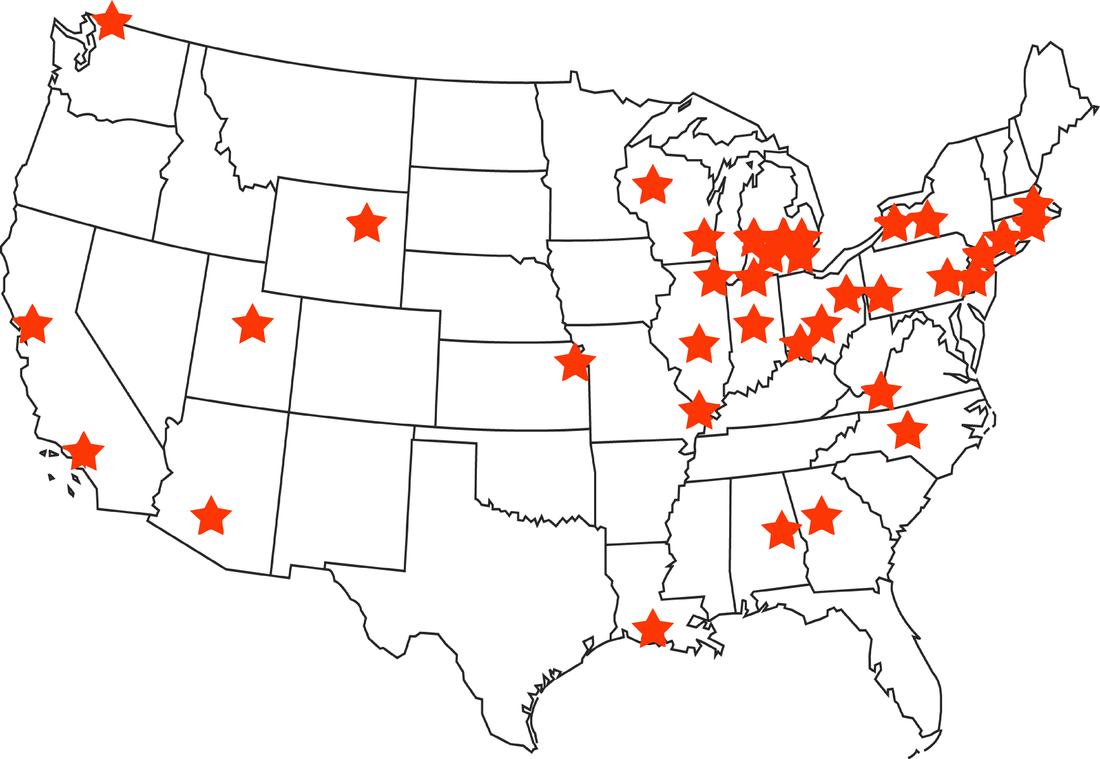
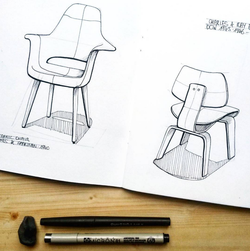
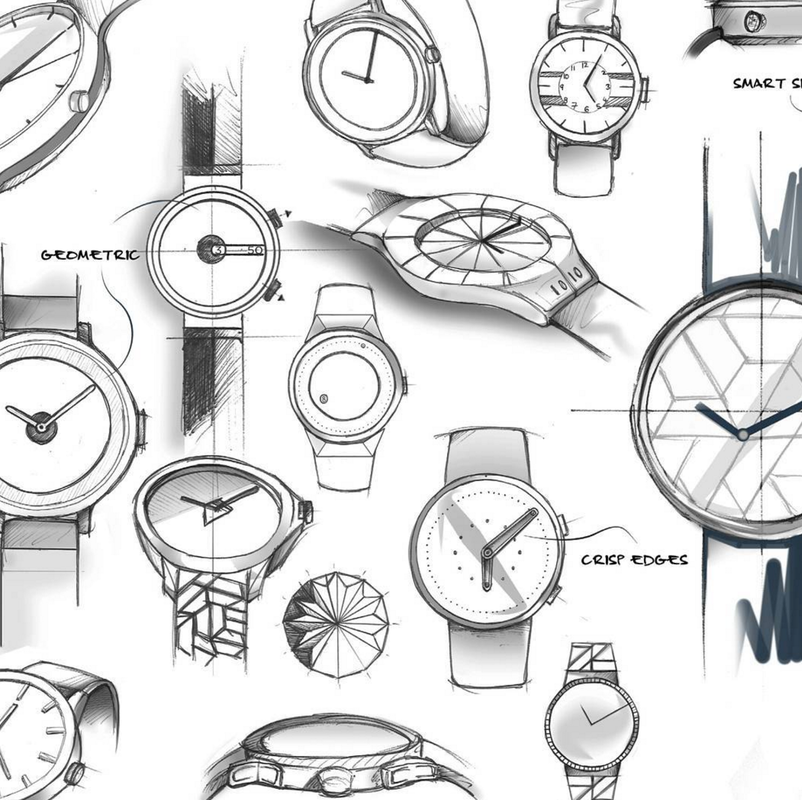
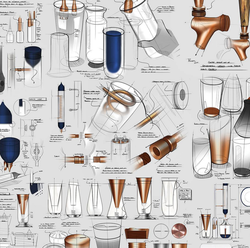
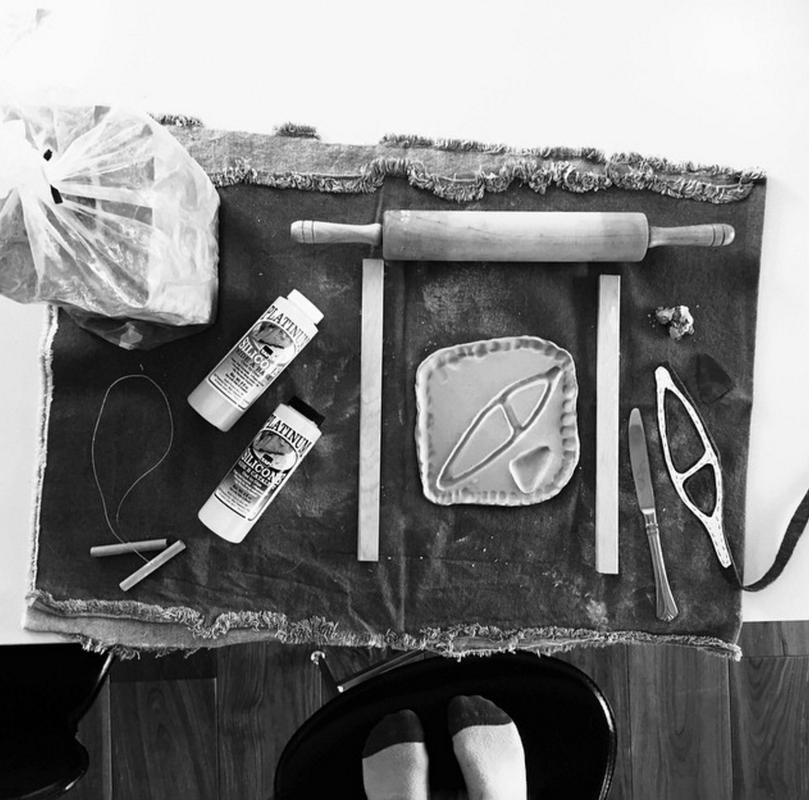
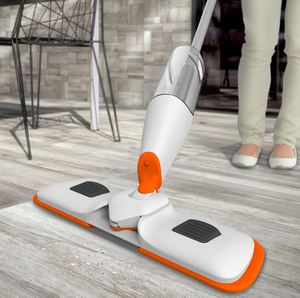
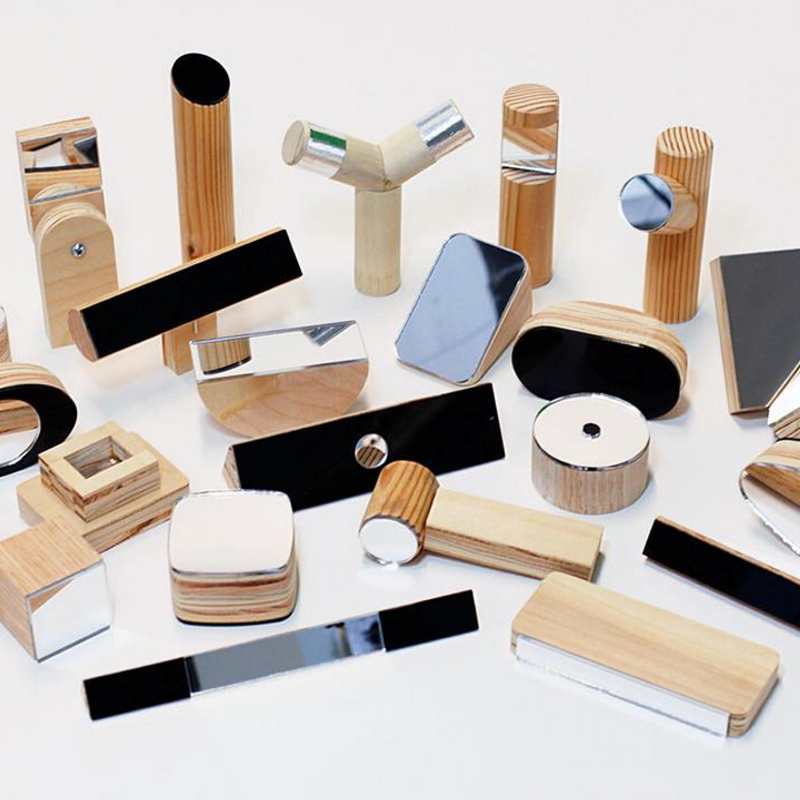
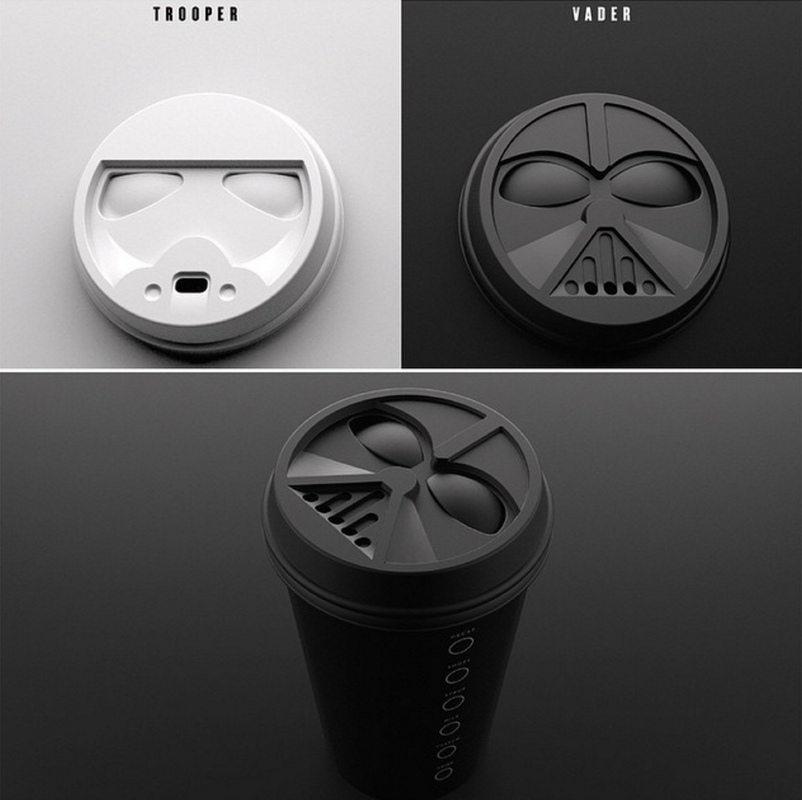
 RSS Feed
RSS Feed
